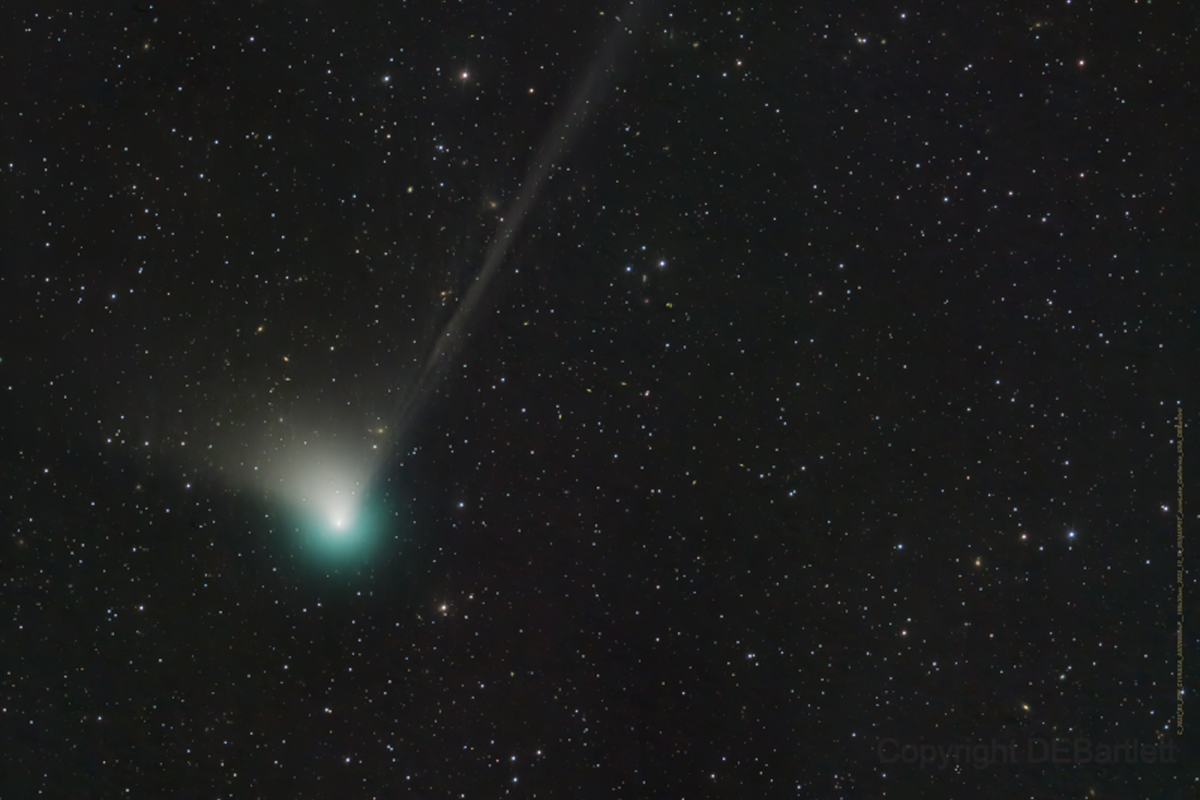For free real time breaking news alerts sent straight to your inbox sign up to our breaking news emails
Sign up to our free breaking news emails
A rare green comet, last seen around 50,000 years ago, is due to make its closest pass by Earth.
Called C/2022 E3 (ZTF), this celestial object hails from the Oort cloud at the outermost edge of the Solar System.
It will come closest to Earth on February 1, within about 45 million kilometres.
The icy ball orbits the sun once every 50,000 years, which means the last time it went past the planet was during Stone Age – when Neanderthals roamed the Earth.
Dr Greg Brown, an astronomer at the Royal Observatory Greenwich, told the PA news agency: “Long-period comet C/2022 E3 is currently speeding through the solar system and won’t return for at least 50,000 years, assuming it ever does, so it’s your once-in-a-lifetime chance to see it.
Recommended
- Charity boss speaks out over ‘traumatic’ encounter with royal aide
- Ukraine war’s heaviest fight rages in east – follow live
Easiest to see will be the brighter head of the comet, but, if you are lucky, you may spot one of its two tails sweeping out from it
Dr Greg Brown
“Its path across our sky is taking it through the constellation of Draco the dragon and will be passing between the two bears, Ursa Major and Ursa Minor, in late January and into early February.”
C/2022 E3 was first spotted in March 2022, using the Zwicky Transient Facility in California.
Its green glow is a result of ultraviolet radiation from the sun lighting up the gases surrounding the comet’s surface.
C/2022 E3 has recently become bright enough to see with the naked eye in areas with minimal light pollution.
Dr Brown told PA: “While it may yet become possible to see it with the unaided eye from an extremely dark site, you are much better off pointing a pair of binoculars or a small telescope at it.
Recommended
- Succession season four trailer teases more family fighting
- Government to publish fresh plan to tackle pressures on NHS
- Kate ‘absolutely determined’ to change attitudes to early years development
“For observers in the UK, head out after midnight when the comet will be highest in the sky and try and find the faint greenish light coming from it.
“Easiest to see will be the brighter head of the comet, but, if you are lucky, you may spot one of its two tails sweeping out from it, each made of material being jettisoned from its rapidly warming icy surface.”
✕
Subscribe to Independent Premium to bookmark this article
Want to bookmark your favourite articles and stories to read or reference later? Start your Independent Premium subscription today.
SubscribeAlready subscribed? Log in
Popular videos
{{/link}}

